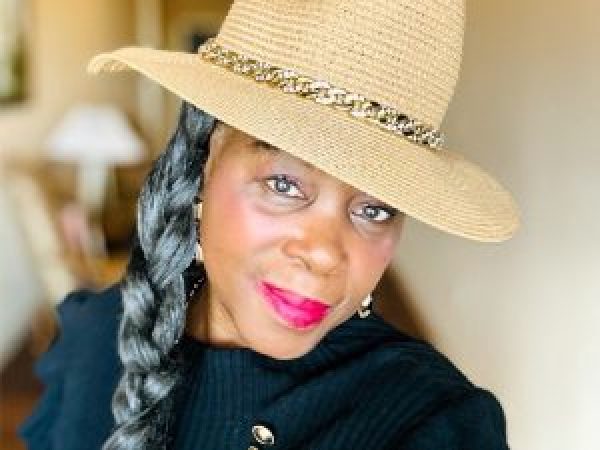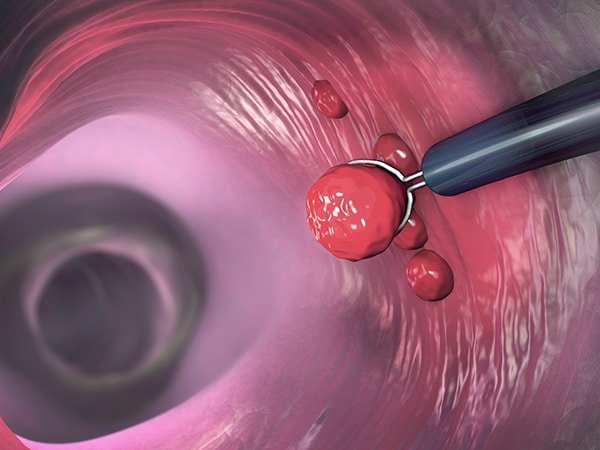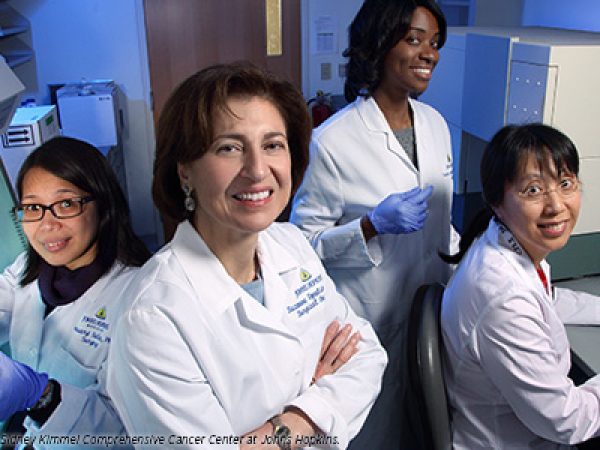Allison Rosen: From an Early-Onset Cancer Diagnosis to Patient Advocacy: From an Early-Onset Cancer Diagnosis to Patient Advocacy
Diagnosed with colorectal cancer at 32 years of age, Allison Rosen found meaning in helping others and advocating for cancer prevention and research to advance new treatments.
For Allison Rosen, the AACR Scientist↔Survivor Program® was an opportunity to connect with fellow cancer survivors, enhance her patient advocacy, and learn about the science behind the latest advances in cancer research from leading experts in the field.
The program at the American Association for Cancer Research (AACR) Annual Meeting also provided Allison with a new venue to highlight her story of resilience and recovery with other survivors, patient advocates, and researchers.
“It’s really, really healing to share my story,” she said.
Allison is a survivor of early-onset colorectal cancer from Texas who turned to advocacy after her initial diagnosis and treatments. She’s also an enthusiastic participant in social media with posts and videos that carry out her messages on the importance of screening and that, yes, young adults can get cancer, to broader audiences.
“Screening saved my life,” she said.
She was 32 years old when she was diagnosed with colorectal cancer. After noticing concerning symptoms, her doctor referred her to a gastroenterologist, who spotted a blockage on an X-ray. A colonoscopy confirmed that the blockage was the result of a 13-centimeter tumor in her colon.
Surgery followed, including an ileostomy and external bag – an ostomy bag – that was intended to be temporary. Allison didn’t want a permanent external bag.
“I didn’t want that because I was young, and I thought it would hinder my life,” she explained. “It would make me not be able to do the things that I love.”
After reversal surgery, however, she found that dealing with her rearranged internal organs was more difficult than handling an external bag.
“I had something called lower interior reception syndrome, where anytime I ate or drank, I was going to the bathroom. So going on a road trip, forget it. Going on a plane, I had to be closest to the restroom,” Allison recalled. “I had a lot of anxiety and stress related to the surgery I had had, so the ileostomy that I got finally gave me my life back. Now I travel all over the world. I go surfing and rock climbing. I was just in Africa, where I got to climb Table Mountain, and it’s all because of my ileostomy.”
Of course, she put a video on TikTok – where she is @AllisonRosen4 – to show that having an ostomy bag doesn’t have to cramp one’s style. Her dance skills are as good as ever.
Allison says her commitment to advocacy began when she wanted to meet other young adults who were going through cancer treatment, just as she was.
“Once I met them, my life changed forever, and I realized that the support they gave me, I wanted to give to others,” she said. “So that started my advocacy journey, helping other young adults, helping other colorectal cancer survivors, and really trying to help bridge the gap between the scientific researchers and scientific community with the patient and survivor and caregiver community.”
She worked at the University of Texas MD Anderson Cancer Center before her diagnosis and, when she felt up to it after her surgeries, she joined the patient organizations there.
“I joined the Young Adult Advisory Council and the Patient and Family Advisory Council,” she said. “That opened the door for opportunities to share my story to magazines, to news media outlets, to anyone that would listen. I would talk because I had thought I was alone, and I didn’t want anyone else newly diagnosed thinking that they were alone.”
This initial advocacy led her to the AACR and its Scientist↔Survivor Program®. She felt drawn to the program’s unique approach to two-way communication between researchers who study cancer and survivors who have had it.
“I thrive on learning,” she said as she prepared to plunge into the AACR’s Annual Meeting 2023 with its thousands of participants and hundreds of symposiums, presentations, poster sessions, and other events. “The amount of knowledge that I’m going to get from here is going to be mind-blowing. I’m just so excited to go to posters, to go to sessions, and learn from the experts in the field about what is happening and the innovations that are coming up.”
Like other cancer advocates, Allison knows she has a big potential audience.
“One in three develop cancer in their lifetime,” she said. “Look to your right; look to your left. If it’s not affecting you, it’s affecting a mother, a sister, a brother, a cousin, someone you love and care about.”
“And the only way to advance cancer treatment and cancer prevention and long-term survivorship of cancer is through cancer research,” she added. “So, we need funding for cancer research so we can find the best and most innovative treatments so that people can live longer, happier, healthier lives.”




